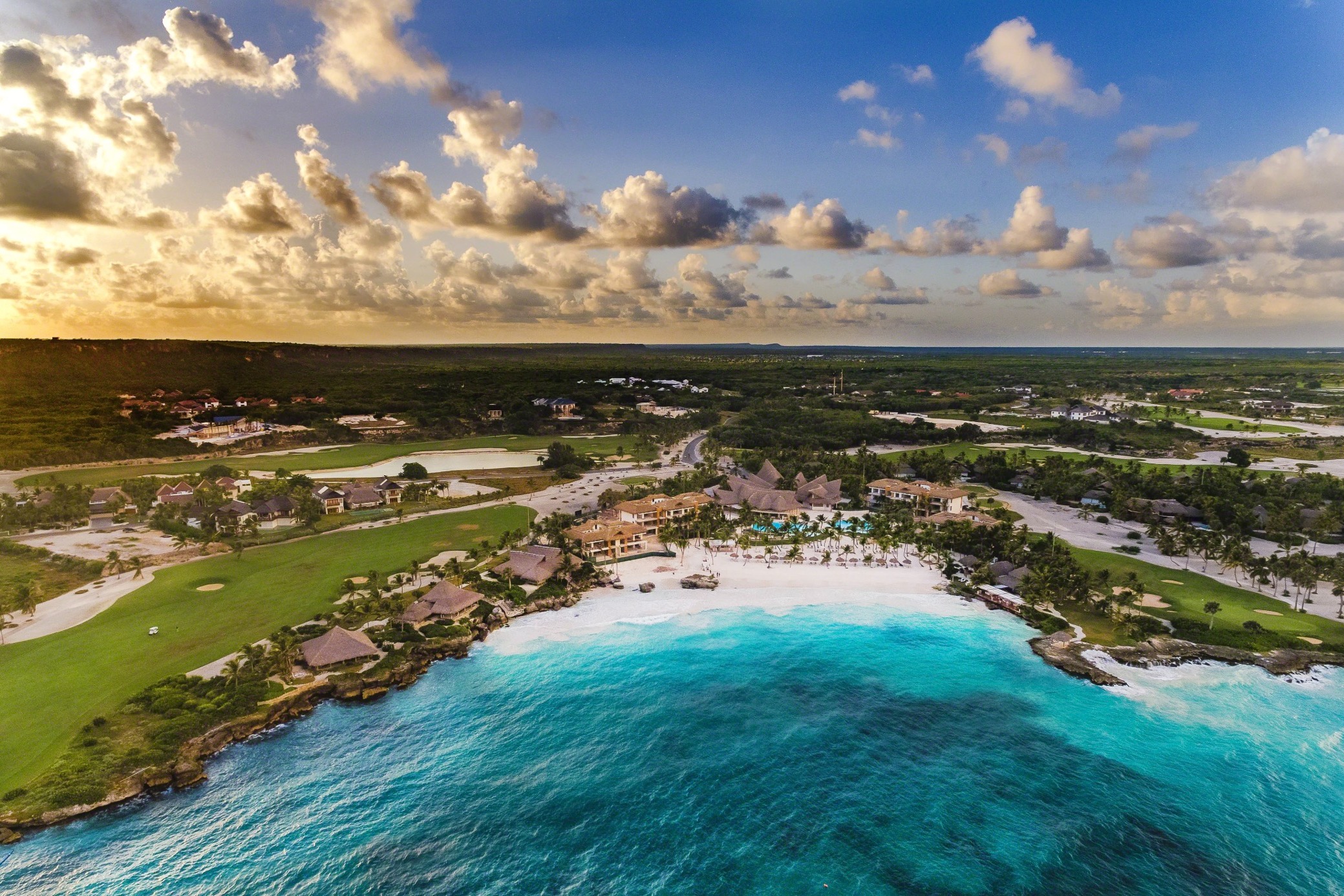
Image courtesy of Eden Roc Cap Cana
The Dominican Republic is well known for its gorgeous beaches and all-inclusive resorts. But if you take time to dig a little deeper, you’ll discover a country that’s brimming with a beautiful mix of Spanish, African and Taíno heritage. Pair that culture with adventures like zip lining and whale watching to tick all those boxes on your vacation checklist.
When it comes to planning when to visit, November to April is the dry season. But don't be scared off by the rainy season, which is usually just a passing storm to cool things off. This can be a good time to find better rates and availability.
Learn about other tips and insider intel below, and when you’re ready to plan your DR getaway, reach out to me to get started.
Need to know
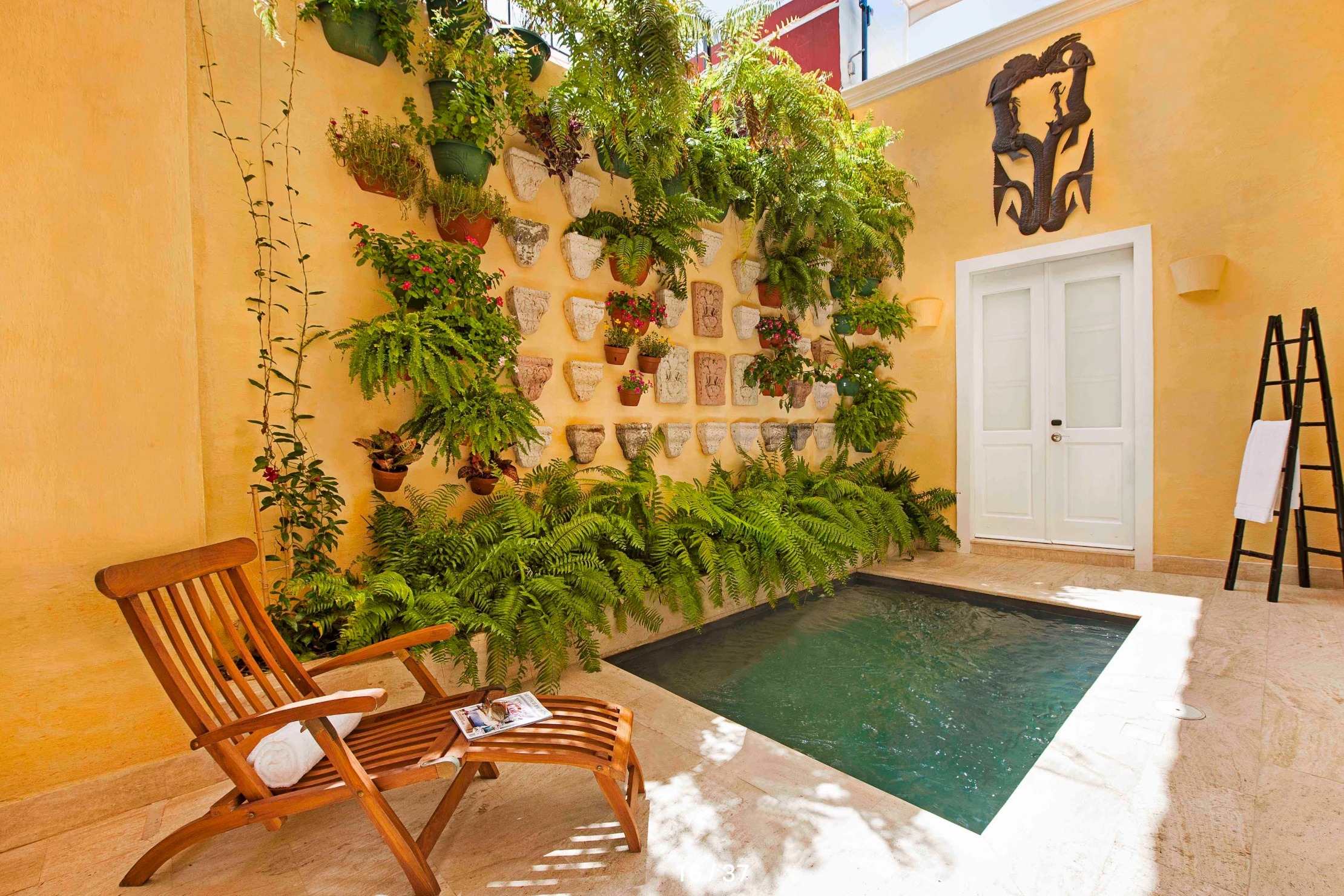
Image courtesy of Casas Del XVI
Currency: The Dominican Peso (DOP) is the official currency, but US dollars are widely accepted in tourist areas. Cash is preferred for tipping. Credit cards are commonly accepted in hotels and larger shops.
Languages: The main language is Spanish, but English is widely spoken.
Airports: Punta Cana International Airport (PUJ); Las Américas International Airport (SDQ)
Transportation: Private car transfers and shuttles are available at most resorts, so you don’t need to rent a car.
Best time to visit: December through May is the ideal time to visit during the dry season. Temperatures range from 75°F to 85°F with low humidity, creating perfect conditions for outdoor activities. June through September is hurricane season, but great deals can be found (don’t forget travel insurance!).
Ideal length of stay: To have enough time to both relax and explore, 5–7 days is recommended.
Signature dishes: Don’t miss the local flavors, including ceviche (fresh local seafood marinated in lime juice), sancocho (a hearty stew made with a variety of meats and cooked with root vegetables), mofongo (mashed plantains mixed with garlic, chicharrón and olive oil, pescado frito (whole fish fried and served with tostones — fried plantains, mangú (a breakfast staple of mashed green plantains served with fried cheese, salami, eggs and pickled red onions), La Bandera Dominicana ("the Dominican Flag" includes rice, beans and a choice of meat often served with a side of fried plantains or avocado).
Key phrases: Hola (hello), Buenos días (good morning), Buenas tardes (good afternoon), Adiós (goodbye), Por favor (please), Gracias (thank you), De nada (you're welcome), Perdón (excuse me/sorry)
What to wear: Casual, comfortable clothing for the tropical climate. Upscale outfits for nighttime dining at some of the luxury resorts.
Where to stay
The Dominican Republic is home to several regions, each with a variety of resorts. Set in the southeast part of the island, Punta Cana and La Romana are two of the most popular areas, with a host of all-inclusive resorts as well as private villas. The North Coast is a prime choice for thrill-seekers, with activities like kitesurfing, snorkeling and deep-sea fishing. And for nature lovers, the Samaná Peninsula is where to go for gorgeous scenery and a laid-back vibe — don’t miss exploring nearby Los Haitises National Park, a great spot for birdwatching.
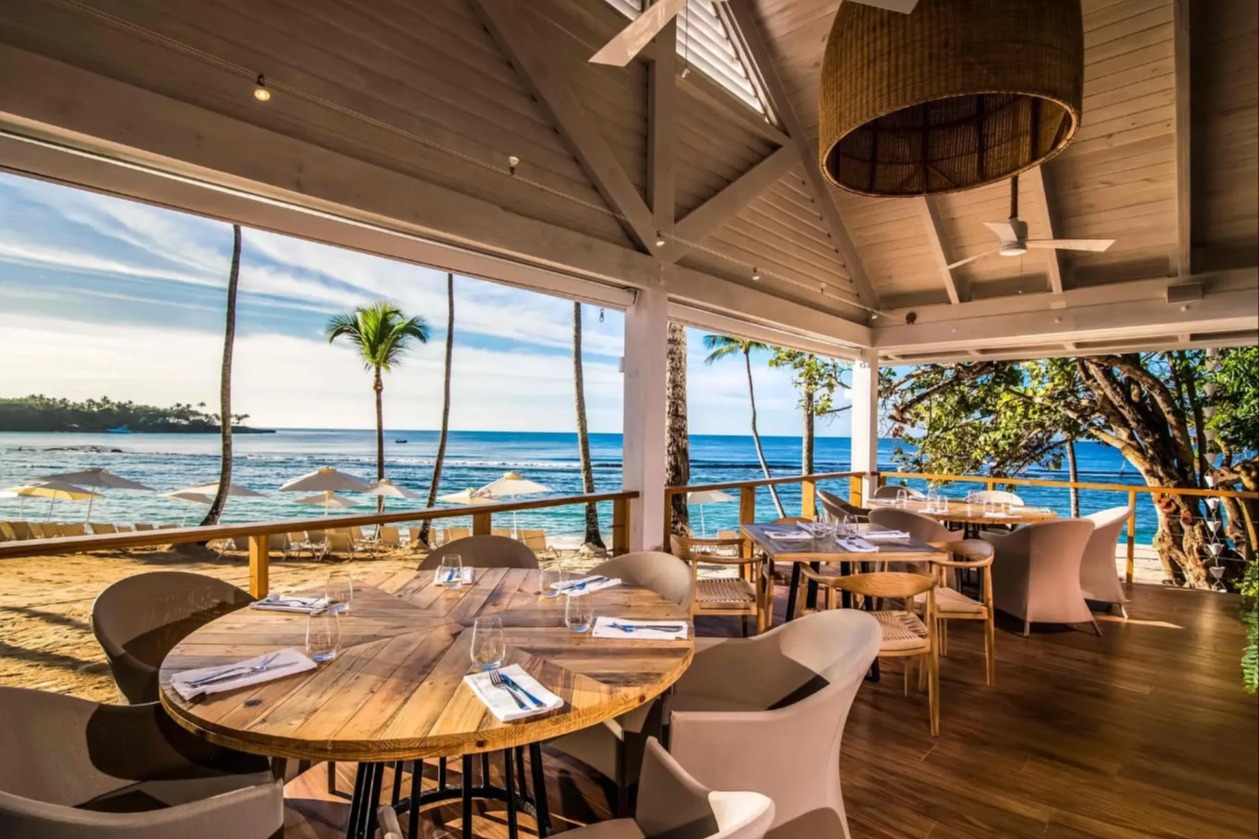
Image courtesy of Casa de Campo Resort & Villas
Casa de Campo Resort & Villas: A 7000-acre resort featuring hotel rooms and private villas, plus golf courses and a beach club.
Fora Reserve perks include a $200 resort credit, daily breakfast, an upgrade and extended check-in/out whenever possible.
Hyatt Ziva Cap Cana: All-inclusive resort offering a family-friendly vibe, beachfront views and multiple pools.
Hyatt Privé perks include a resort credit, daily breakfast, an upgrade and extended check-in/out whenever possible.
Amanera: Exclusive boutique resort set between jungle and beach, offering luxury villas, an oceanfront golf course and a spa.
Fora Perks include a $100 resort credit, daily breakfast, an upgrade and extended check-in/out whenever possible.
Casas del XVI: Small hotel featuring restored charming homes, each with unique decor and personalized butler service.
withIN by SLH perks include a resort credit, daily continental breakfast, an upgrade and extended check-in/out whenever possible.
Eden Roc Cap Cana: Luxe resort offering Mediterranean-inspired suites, private beachfront access and a full-service spa.
Fora Perks include a resort credit, daily breakfast, an upgrade and extended check-in/out whenever possible.
Club Med Punta Cana: Beachfront all-inclusive resort with activities for families and adults, plus gorgeous sea views.
Club Med Michès Playa Esmeralda: Large all-inclusive resort with plenty of beachfront, family activities and some suites with private pools.
Excellence Punta Cana: Adults-only all-inclusive resort for those who want a chill escape with beachfront services and swim-up suites.
Excellence El Carmen: Sophisticated adults-only resort with modern suites, private pools and extensive dining options.
Finest Punta Cana: A good choice for family-friendly luxury and activities for all ages, featuring spacious suites and a kids’ club.
History and culture
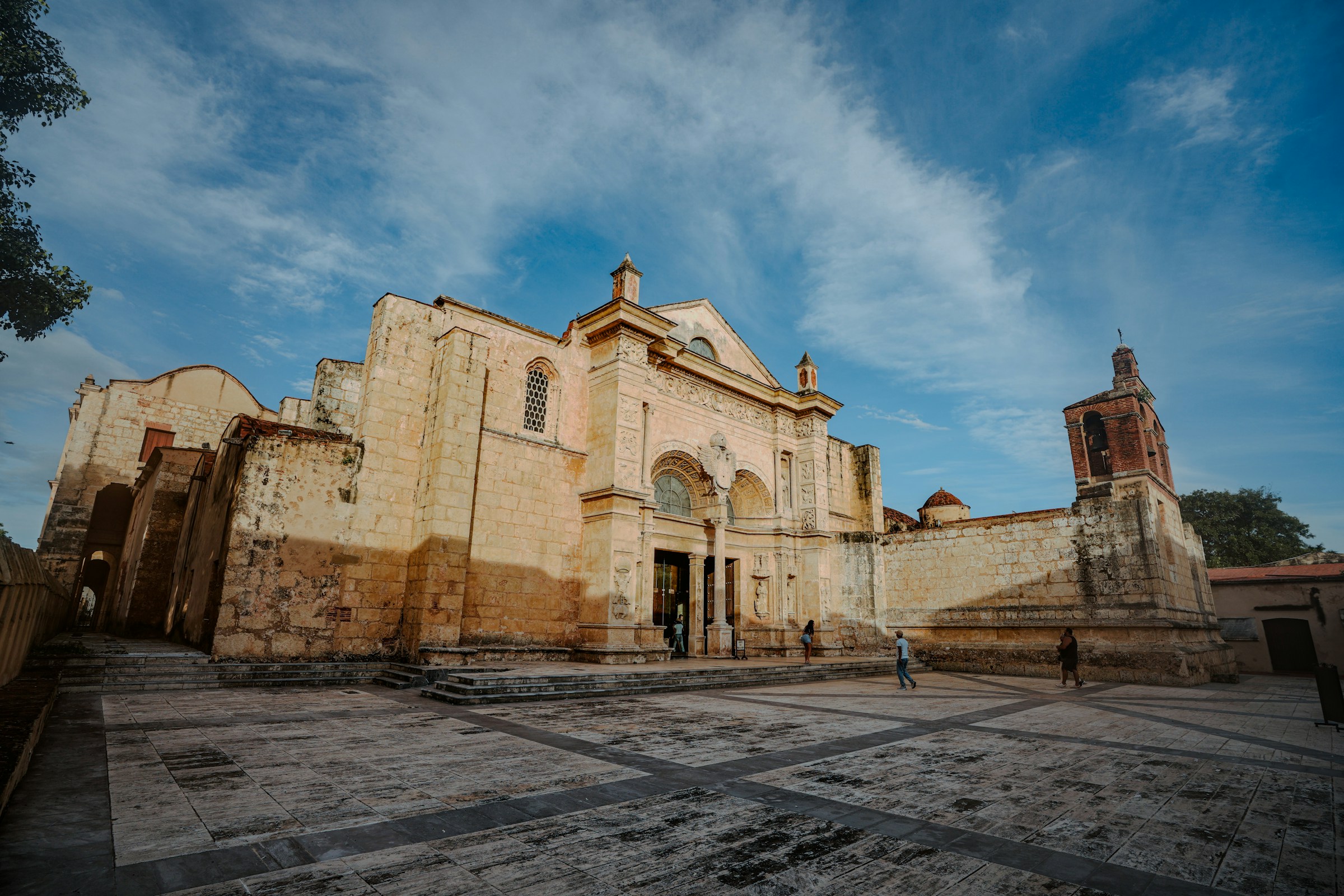
The Dominican Republic's complex history is a mix of Indigenous, European and African influences, all of which contribute to the present-day experience. The island was originally home to the Taíno people, who called it Quisqueya, meaning "Mother of all Lands." Their culture was centered on nature, agriculture and spiritual practices.
In 1492, Santo Domingo became the first European settlement in the Americas. While the Taíno people were severely impacted by colonization, their influence is still visible today in the local culture through the arts, spiritual traditions and respect for the environment.
Later, the African slave trade during the Spanish era added another significant cultural layer, blending with indigenous and Spanish traditions to shape the island’s music and dance forms like merengue and bachata, now celebrated as cultural heritage by UNESCO.
Beyond the city, history can be found at Los Haitises National Park, where caves with Taíno petroglyphs reveal stories of their connection to the land and sea. Learning about the country’s past gives travelers a chance to better appreciate the energy and traditions that still thrive today.
Activities
While many resorts have enough to keep you entertained for the week, you should carve out some time to explore the island’s offerings. Adventure seekers and nature lovers alike will find plenty to do, and for foodies, make sure to taste the local flavors, as well as the rum.
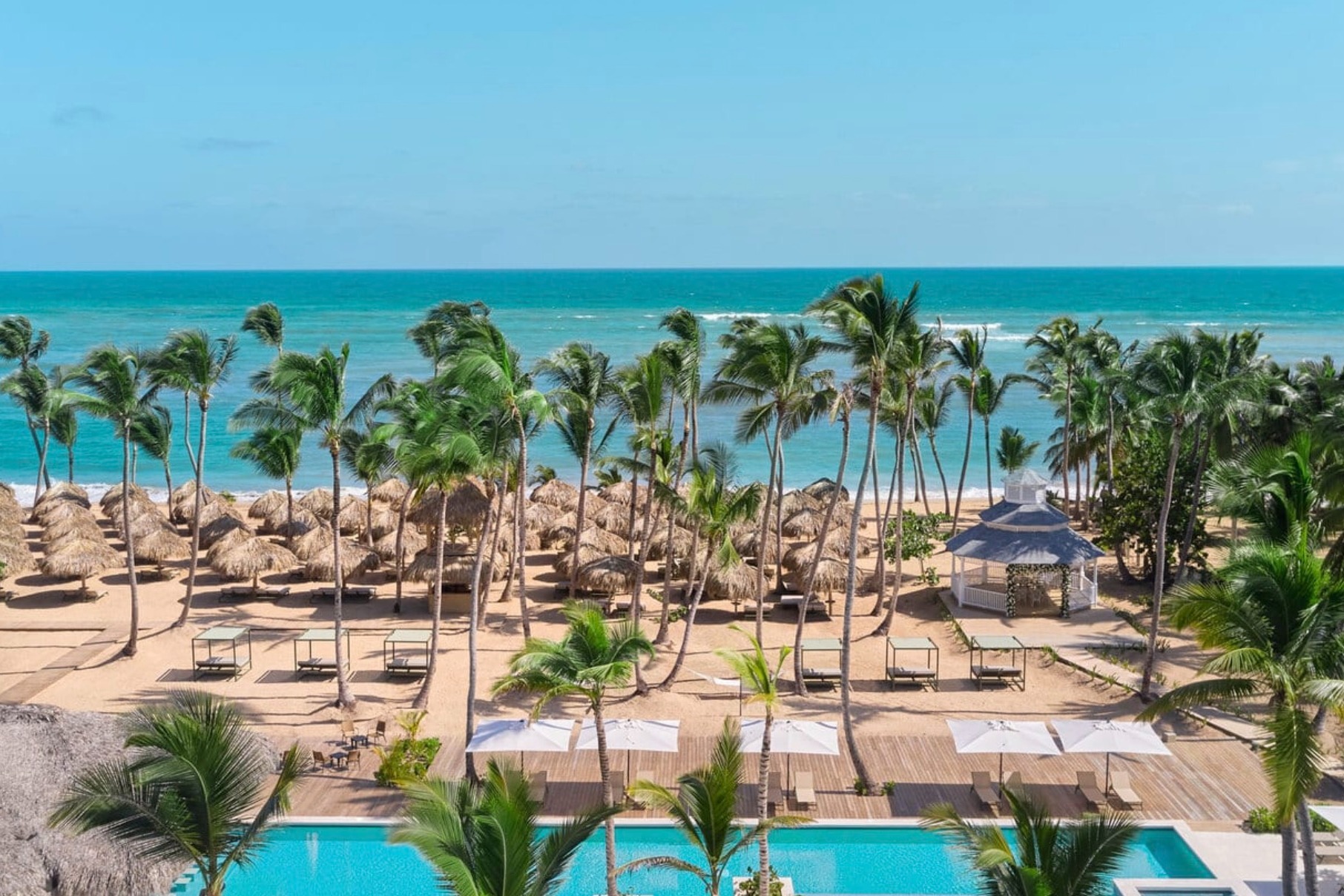
Image courtesy of Finest Punta Cana
Whale watching in Samaná Bay (January to March) is a spectacular sight — it’s hard to explain the beauty of seeing these impressive mammals.
Adventure seekers can opt for canyoning at Hongo Mágico, white-water rafting or hiking Pico Duarte, the highest peak in the Caribbean. Other active excursions include snorkeling, ziplining and horseback riding.
The Dominican food scene is full of interesting flavors and tropical ingredients. Take a cooking class to prepare Chillo al Coco or enjoy a rum tasting to sample world-renowned Dominican rums.
A bike tour through the Zona Colonial in Santo Domingo is a great way to not only see the city’s architecture, but also to learn its history.
Golfing is popular at some of the larger resorts, with Casa de Campo’s Teeth of the Dog course consistently rated as one of the best in the world.
Beaches
Most beaches are public, however, some of the upscale resorts have beach clubs with beachfront food and drink service. You can buy a day pass at places like Minitas Beach Club at Casa de Campo (I can help recommend a beach club).
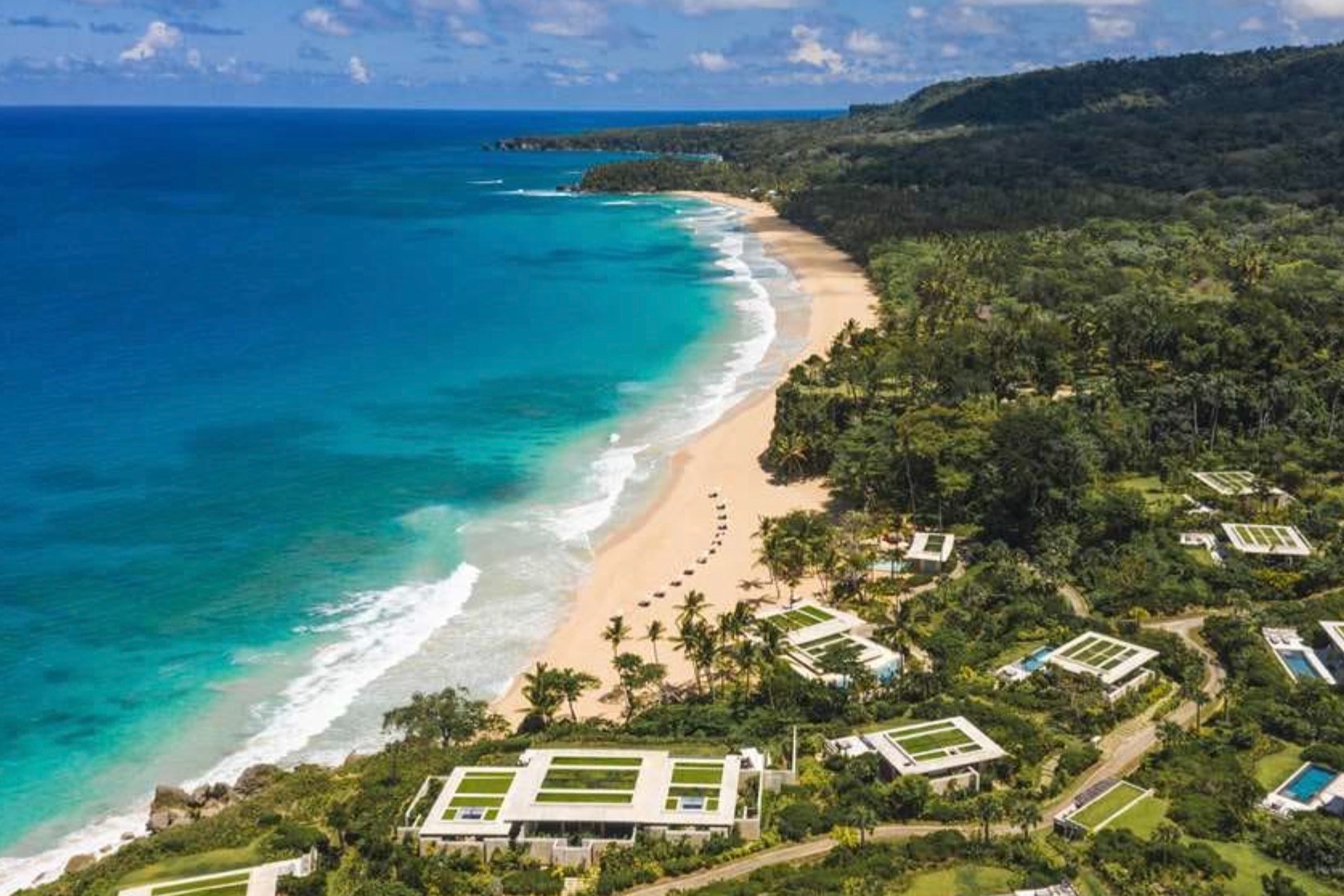
Image courtesy of Amanera
Bahía de las Águilas: Located in the remote southwest, this untouched beach is known for its crystal-clear waters and gorgeous scenery, perfect if you want a secluded escape.
Palmilla: Just a 30-minute boat ride from Casa de Campo’s Marina, this beach offers calm, shallow waters for a relaxing afternoon away from busier beaches.
Punta Cana (Macao Beach): Macao Beach is a popular spot and has golden sands and moderate waves.
Samaná (Cayo Levantado & Playa Rincón): Cayo Levantado is a quick boat ride from Samaná and has beautiful turquoise waters, while Playa Rincón stretches for three miles and is reachable by both car and boat.
Punta Cana & Bávaro Beaches: These beaches are where you’ll find most of the island’s resorts and feature powdery white sand and calm waters.
North Coast Beaches (Puerto Plata, Cabarete): The northern beaches are more dramatic, with lush scenery and stronger waves.
For customized recommendations and expert planning, reach out to me to begin your Dominican Republic adventure.
